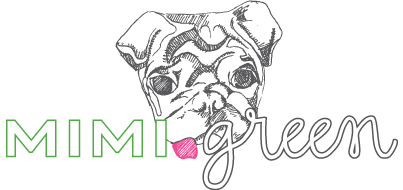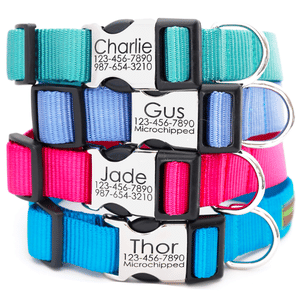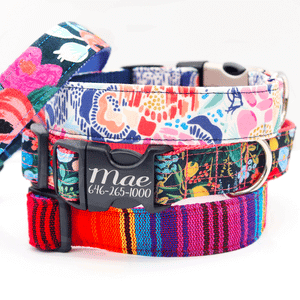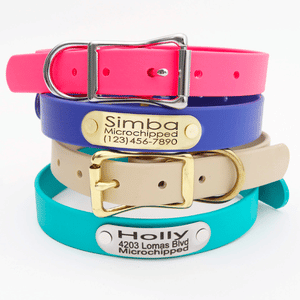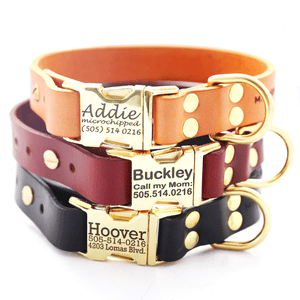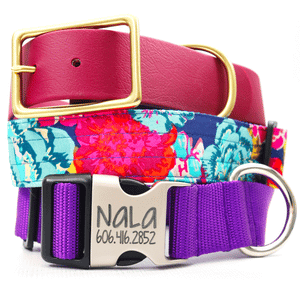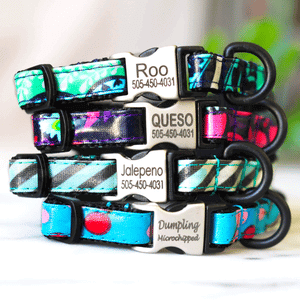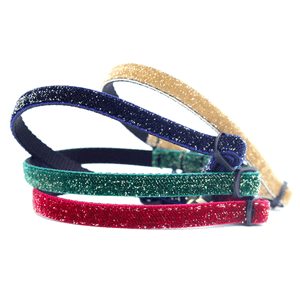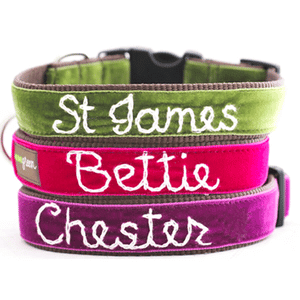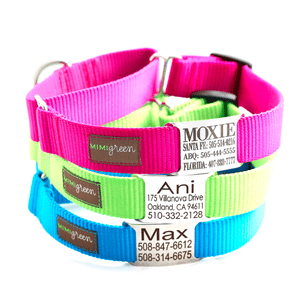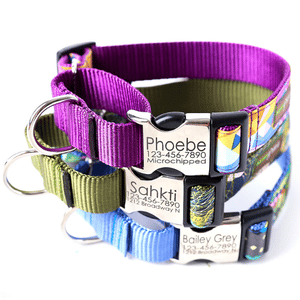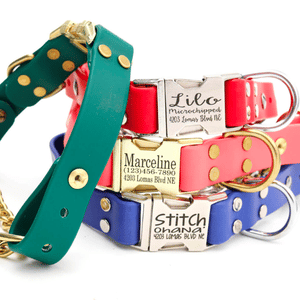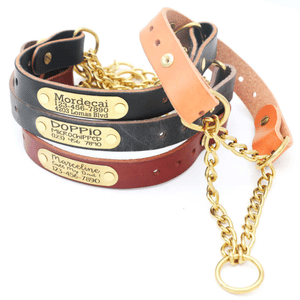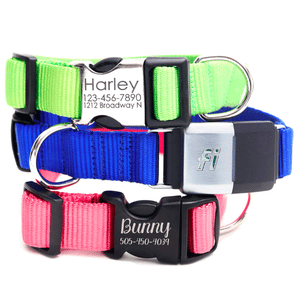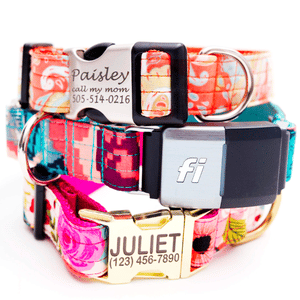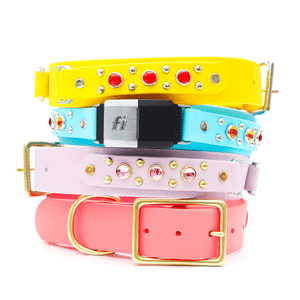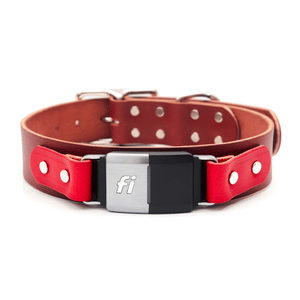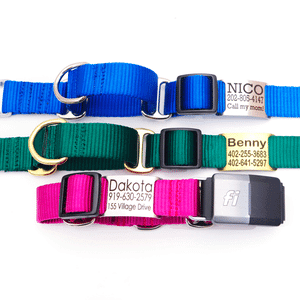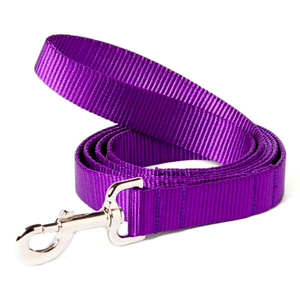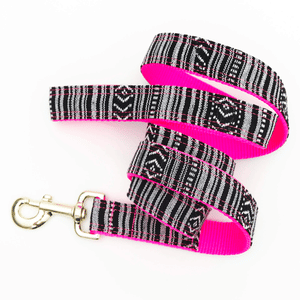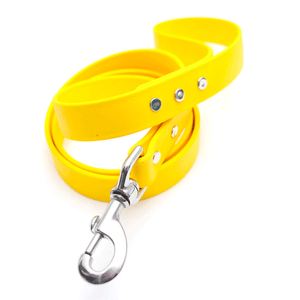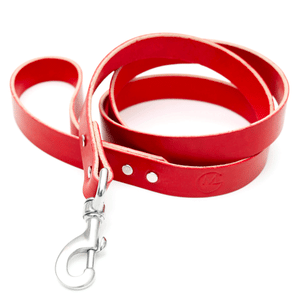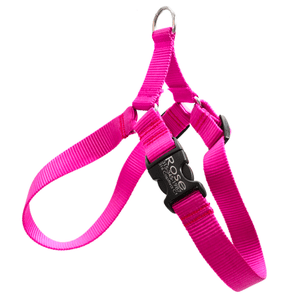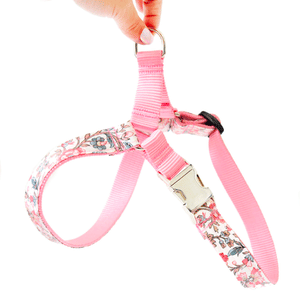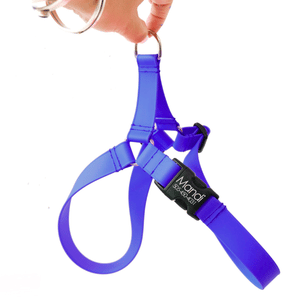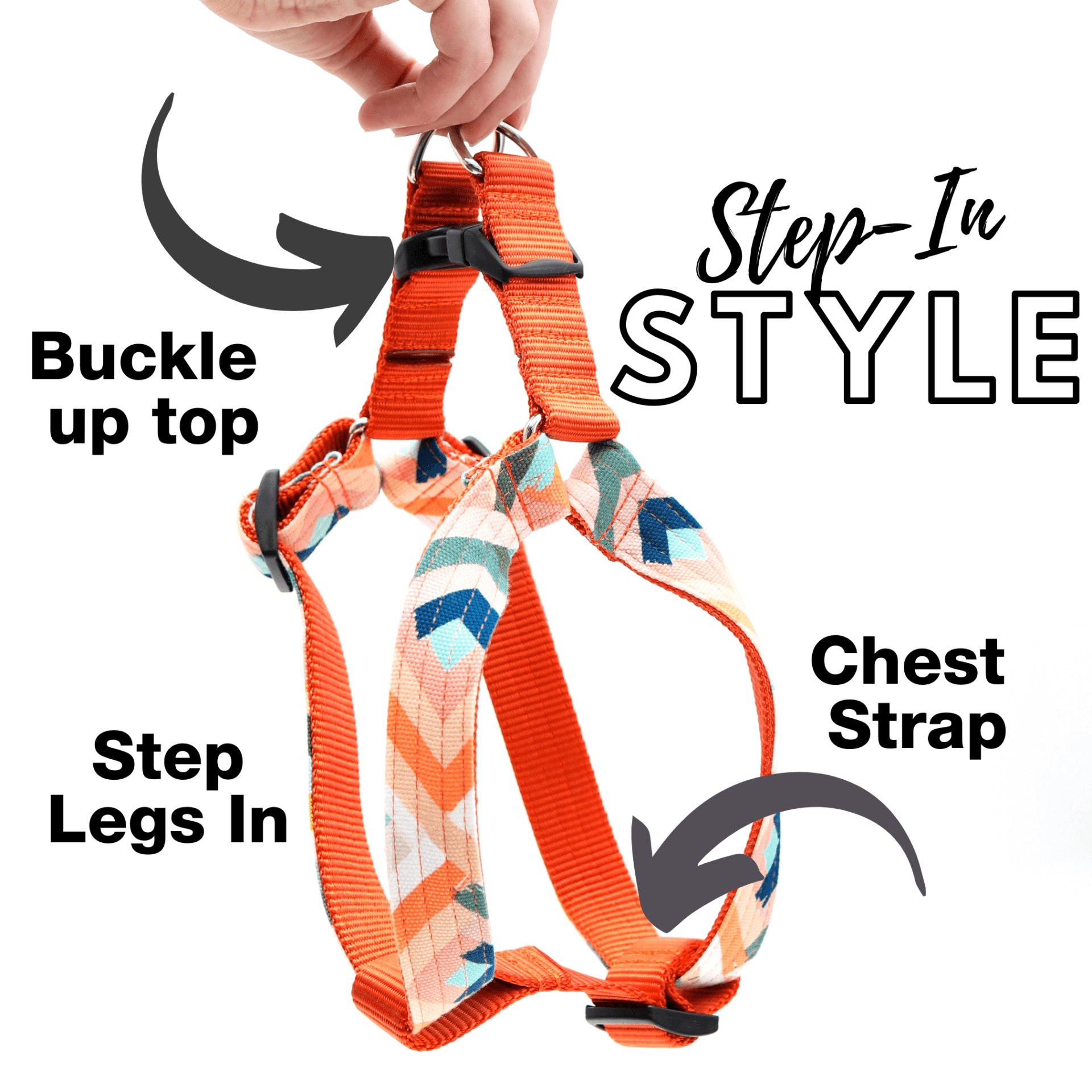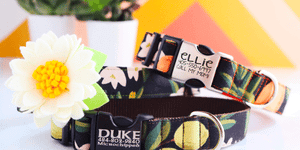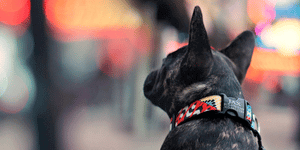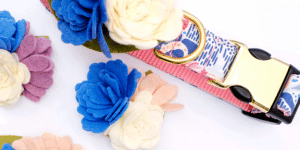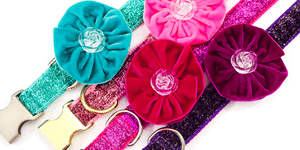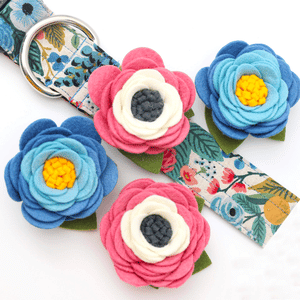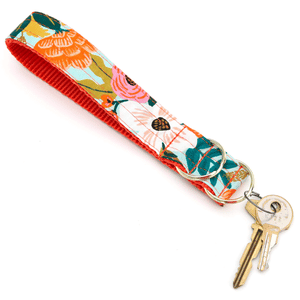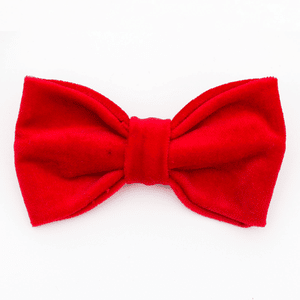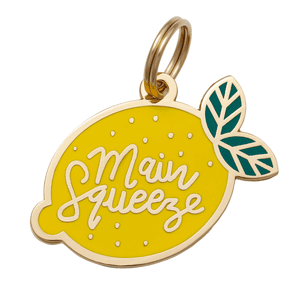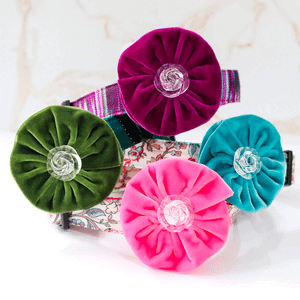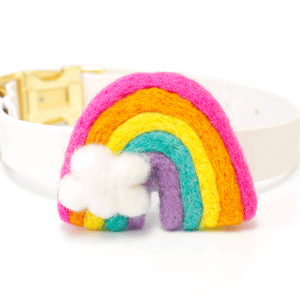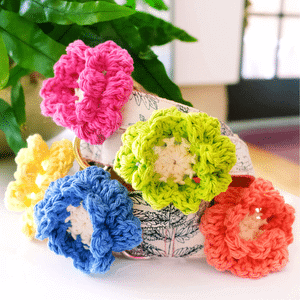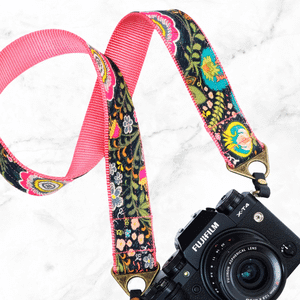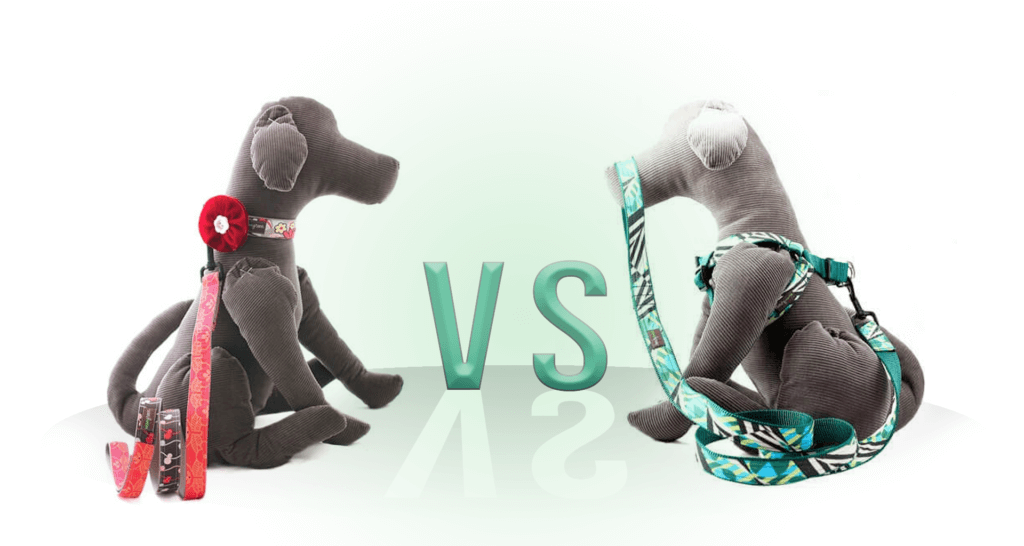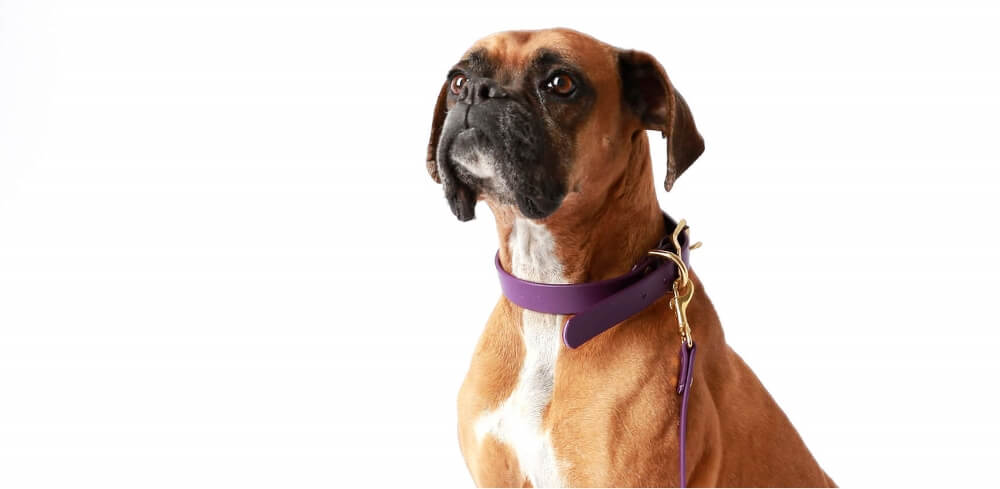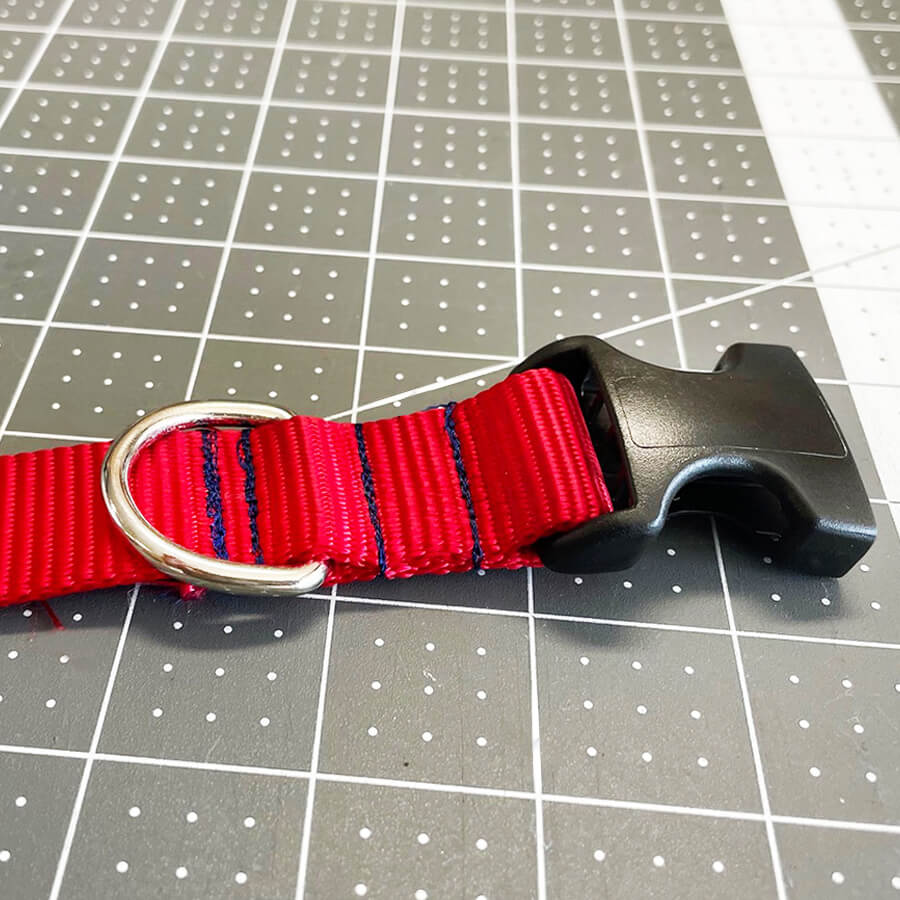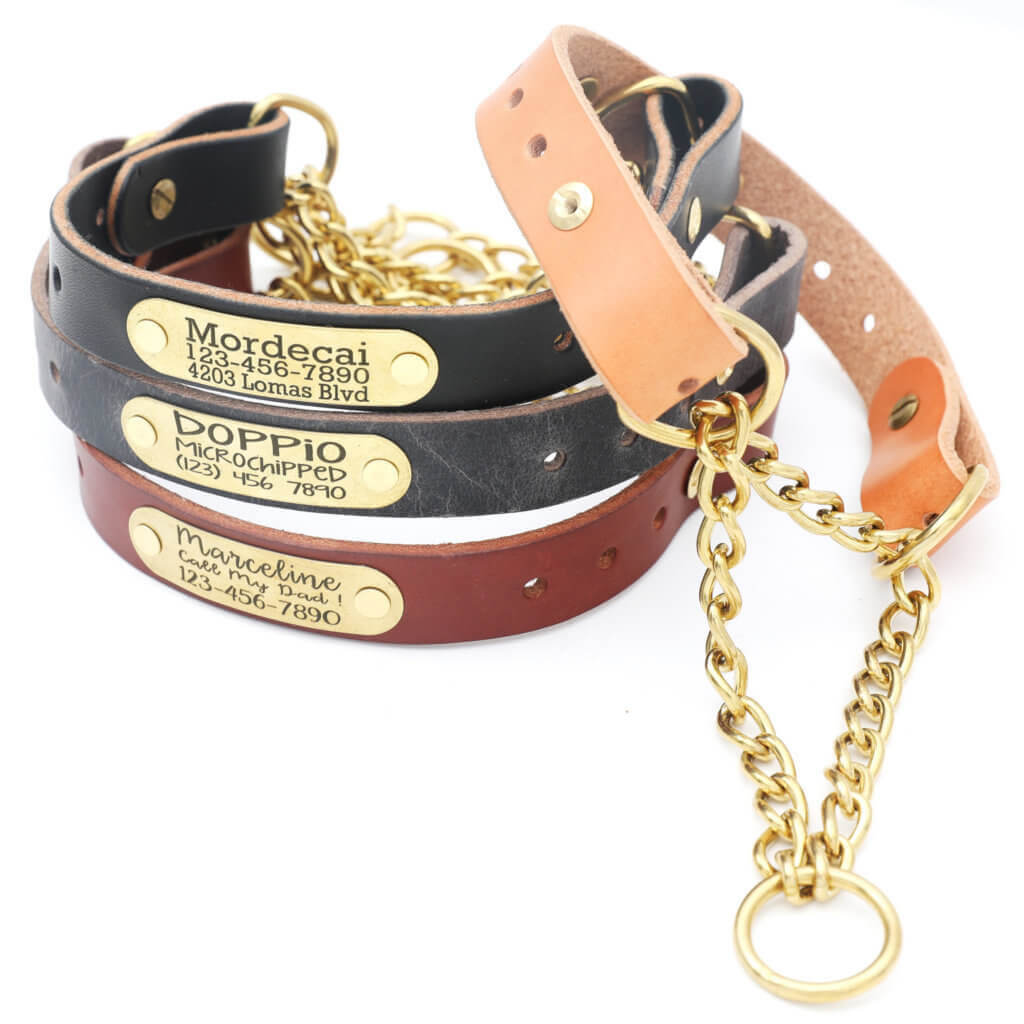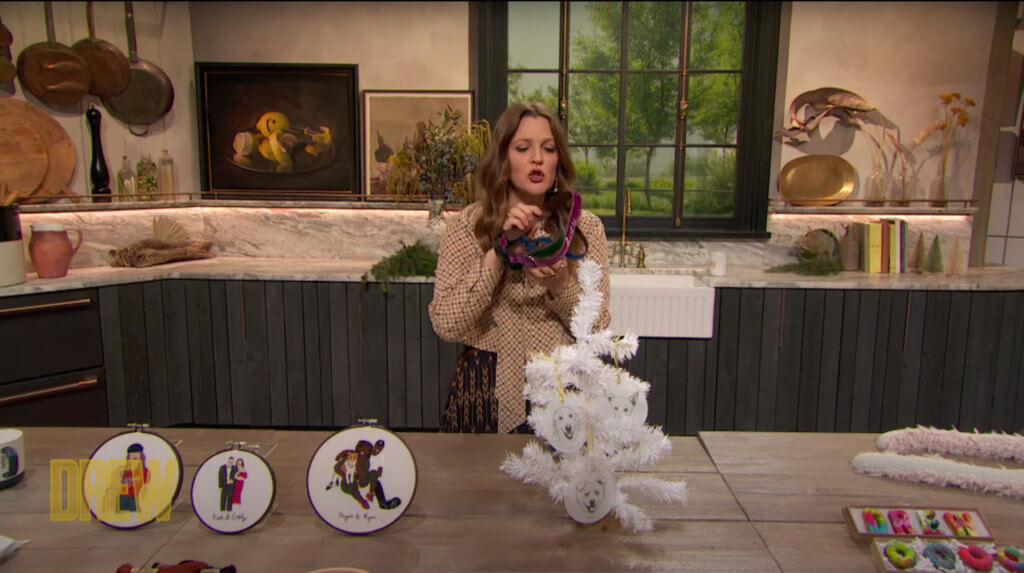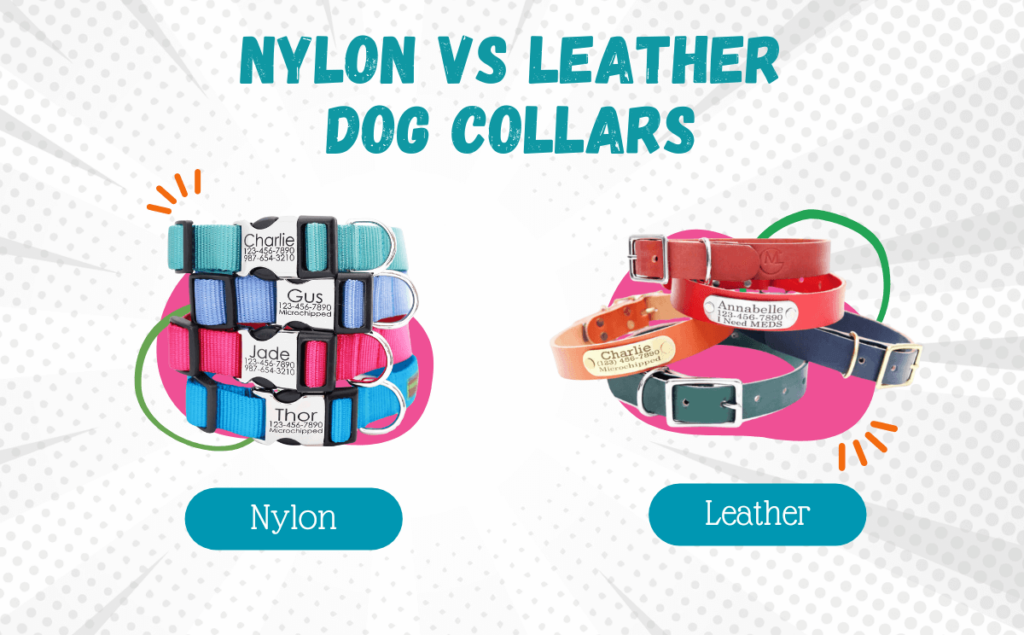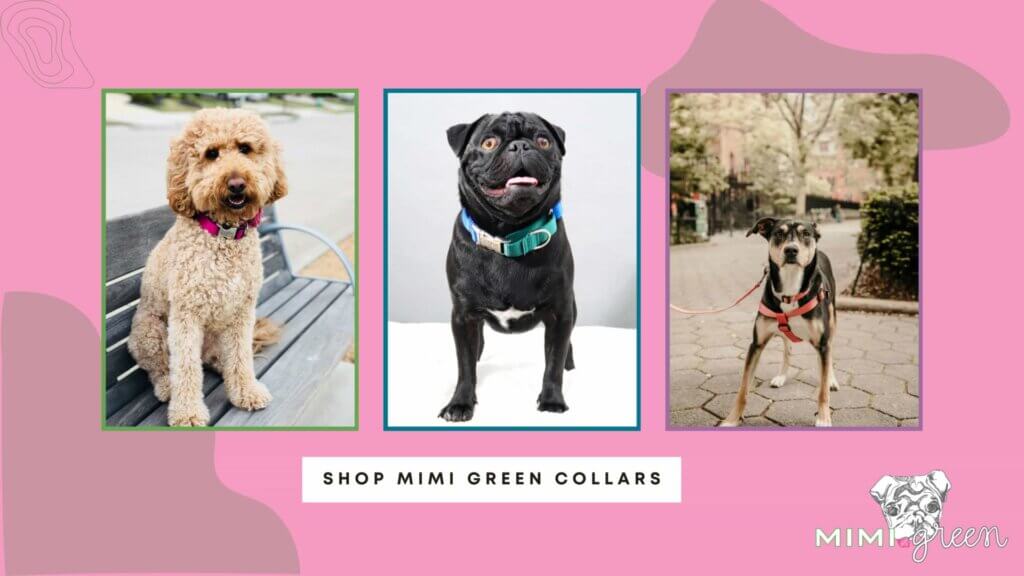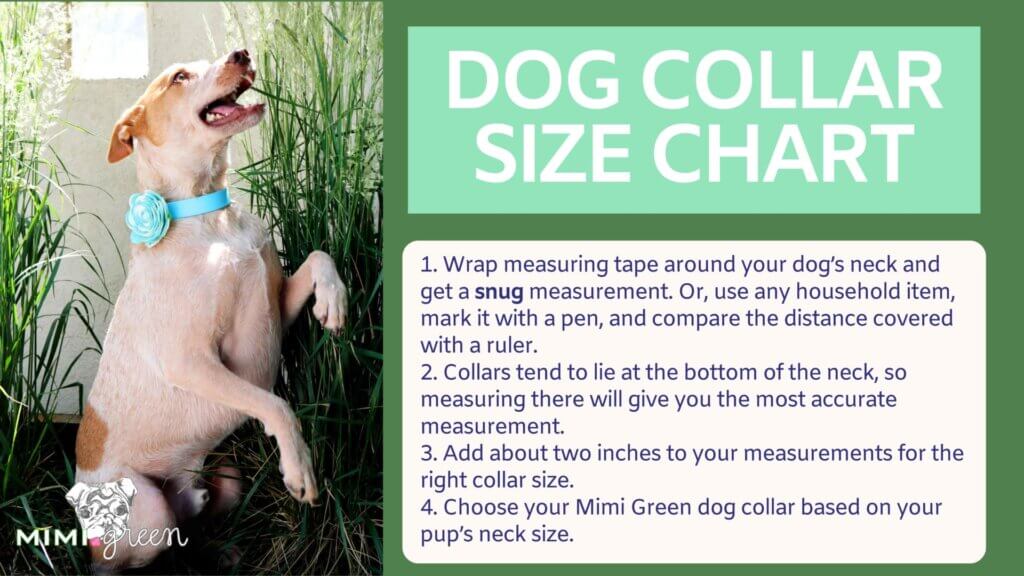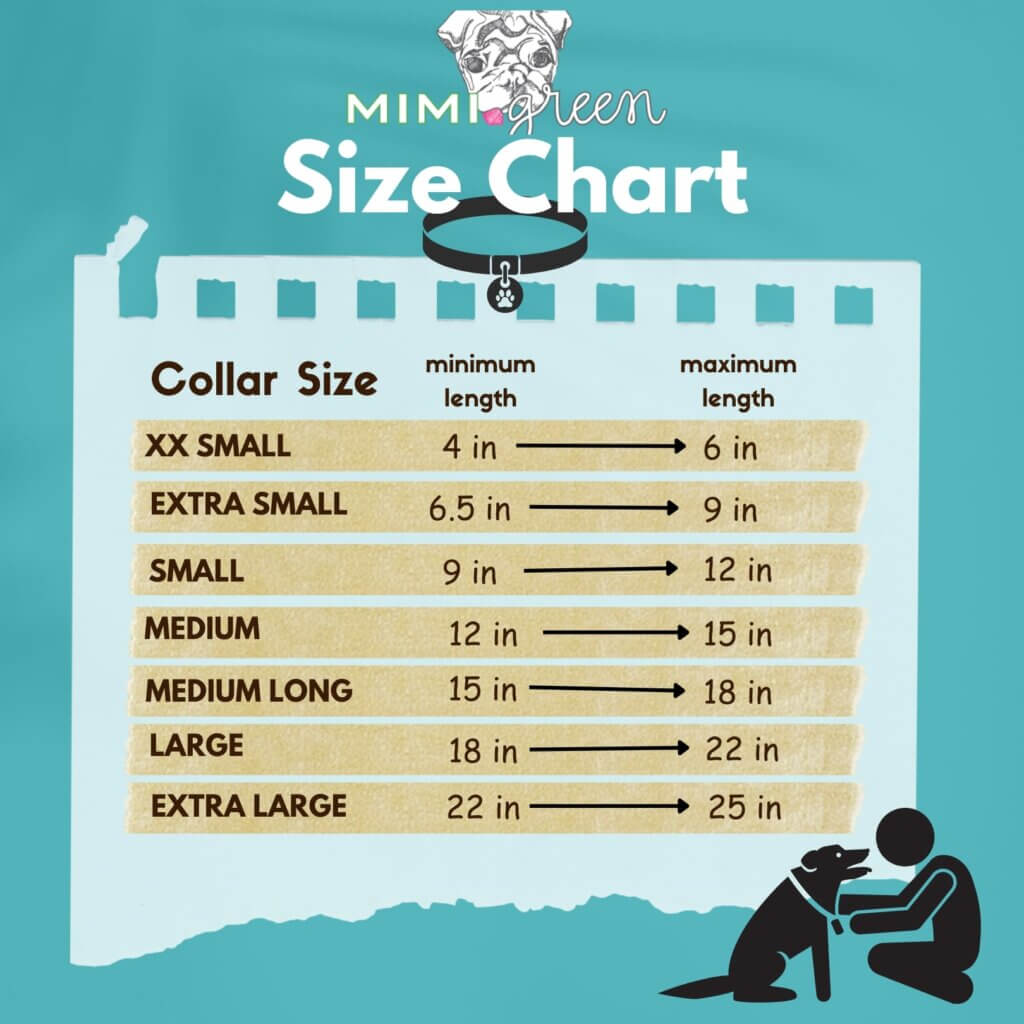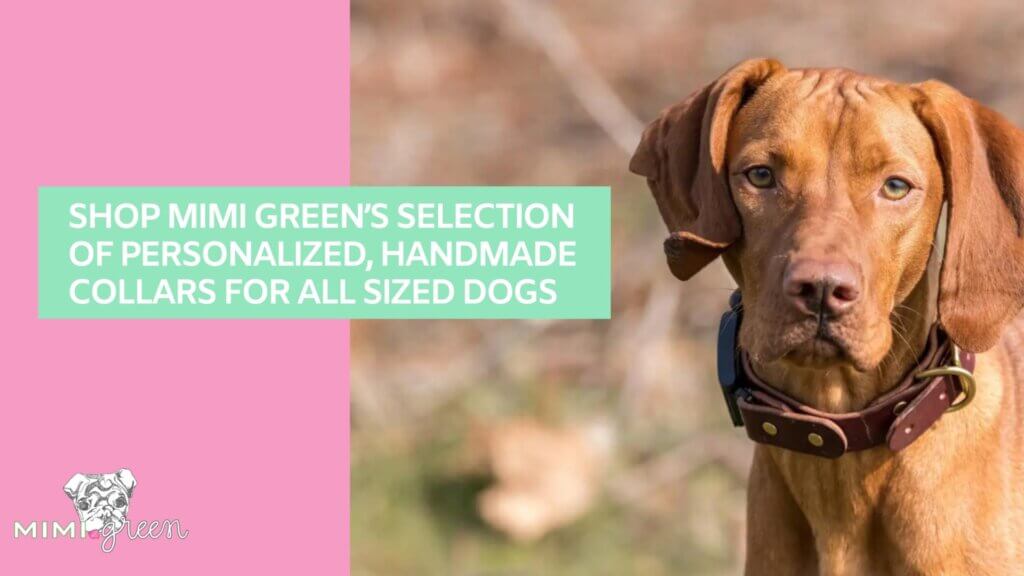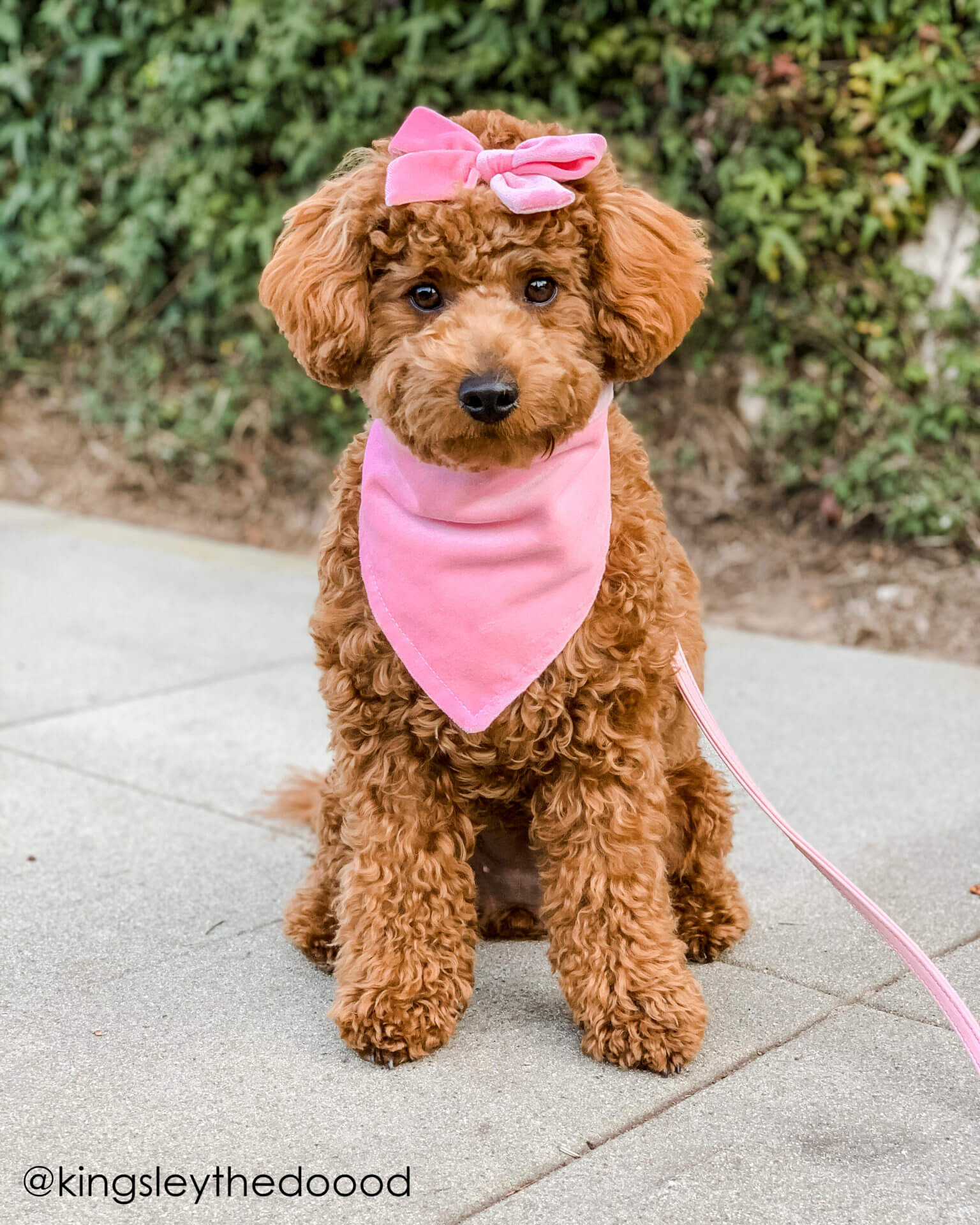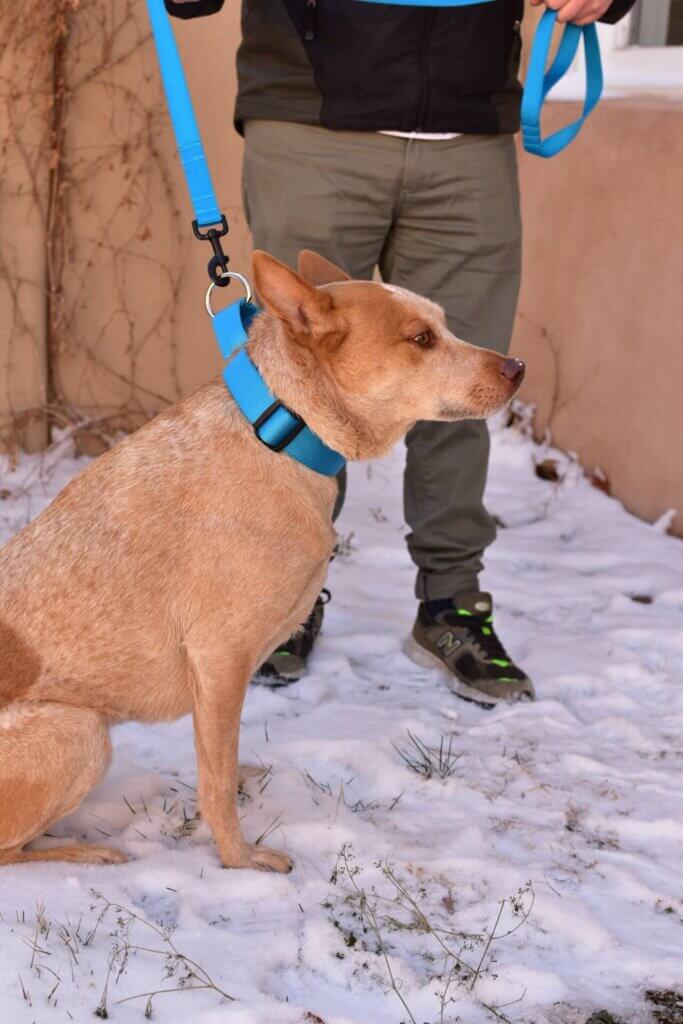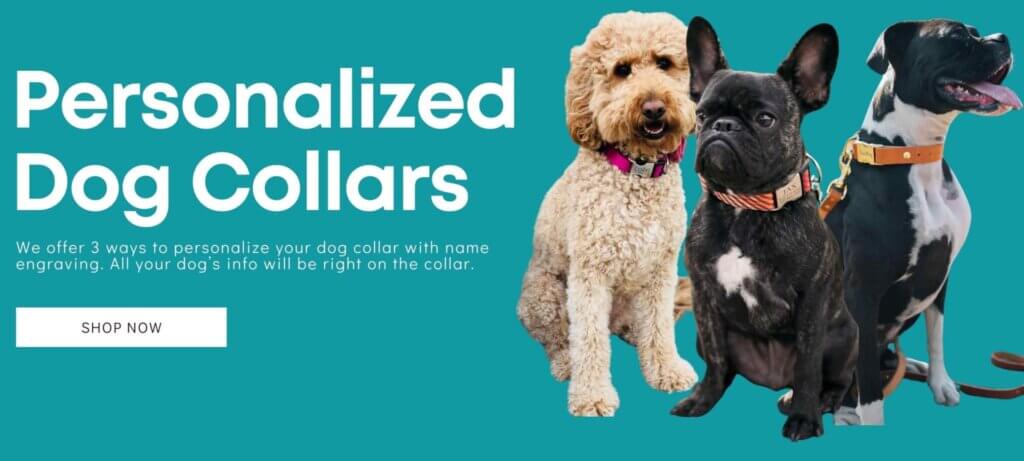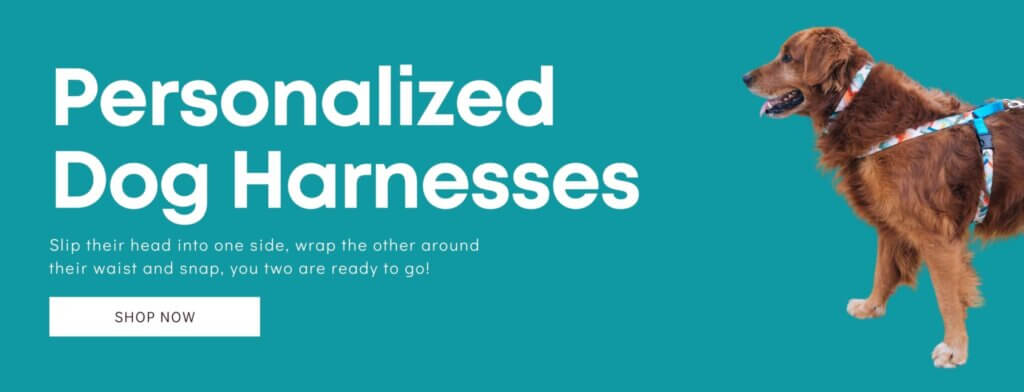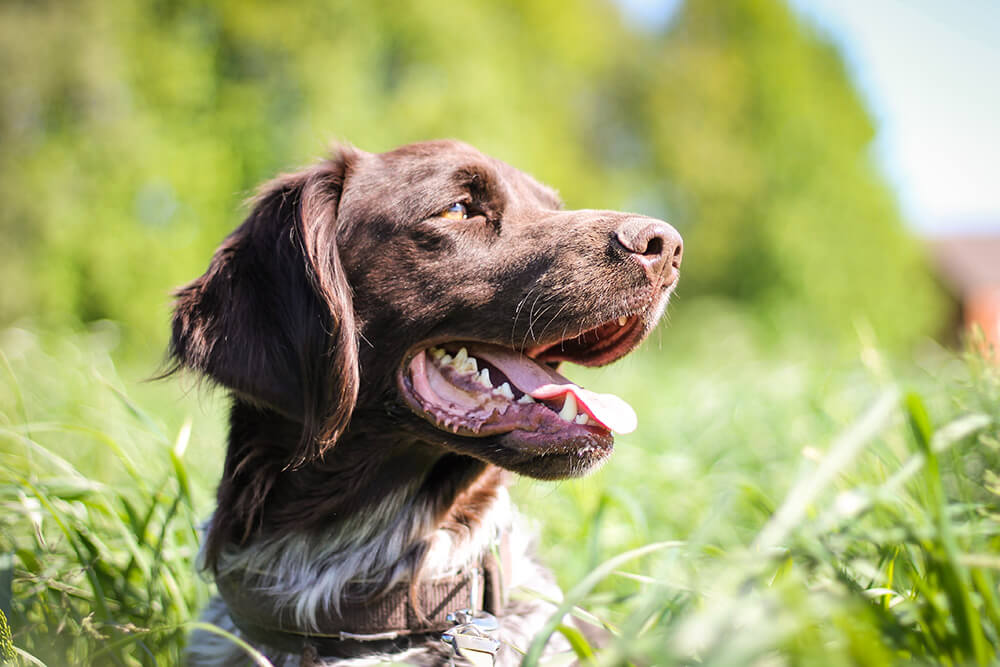This dog walking accessories guide is for you if you’re a dog owner or professional dog walker.
Walking your dog is one of the most rewarding parts of being a dog owner. Not only do you get to spend quality time with your four-legged friend, but you also give them the exercise they need.
This free guide will tell you the 10 or so items you need for a dog walk that ensure safety, compliance, and fun.
A high-quality and comfortable dog collar is one item you shouldn’t leave for a walk without. Yes, even if you use a harness, your dog should still wear a collar on walks. In our harness vs collar article, we shared that for walks, you should use a collar for identification and a harness for leading.
Collar
While searching for the perfect collar, you’ll see they come in various designs and functionalities.
We’ve sold tens of thousands of collars, and these are the three main factors you need to focus on:
- Dog Collar Type: We sell three main types of dog collars: flat, martingale, and Fi-compatible tracking collars.
- Dog Collar Material: After choosing the type, you need to choose a material that matches your dog. Our top choices are nylon, biothane, leather, and fabric.
- Dog Collar Size: Material and type don’t matter if you don’t get the size right. We wrote a handy guide on choosing the right size collar for your dog.
Leash
A reliable leash will keep your dog within your reach and line of vision. We’d be remiss if we didn’t also mention that you can style your leash too with Mimi Green! Leashes come in many materials, but the main options are nylon, fabric, biothane, and leather.
You may also want to consider a hands free leash once your pup is loose leash trained.
If you want to make a splash at the dog park, you may opt for a custom-printed leash. Yes, your dog could be rocking a leash with absolutely any text you wish to feature. Whether you want to include a fun message (such as “I Have the Best Dog Mom Ever!”) or emblazon their name and phone number is up to you.
Pro Tip: Carry an extra leash or slip lead.
Harness
Collars are considered standard for dog walks, but using a harness may be a better option. Collars can be uncomfortable for dogs, especially when they make sudden moves while on a leash. A harness will keep your dog secure and give you greater control over them.
As we said earlier, you can still keep your dog’s collar on while walking them with a harness.
Poop Bags
Walks are mainly for exercise so your dog can handle their business. If you’re reading this blog, we know you’re not the type of dog walker who leaves a mess. You’re not that person, but the question remains: which ones?
We like the Wild One Eco-Friendly Poop Bags
Travel Bowl
A collar, leash, harness, and poop bags are the must-haves for a walk. A travel bowl isn’t mandatory, but it’s nice for your dog to have hydration if you go on longer walks. Dogs get thirsty like us, especially if the walk is physically demanding.
A collapsible water bowl can be easily stuffed in a dog or your own backpack. They also sell bowls with clips to attach to a belt or appropriate loop.
Dog Treats
Rewarding your dog with treats while walking is called positive reinforcement training. Treats can help reinforce good behavior, such as allowing you to lead and not reacting to other dogs and stimuli.
Many dog owners struggle to get their dogs to “check in” with them. Instead, their dogs ignore their commands and decide where the walk should continue. If you struggle with getting your dog’s attention, treats can reinforce the behavior of them walking by your side and checking in every few steps.
Dog Backpack
Do you constantly scramble to find all the items you need for your dog walks? It’s high time you started using a dog bag. While you can buy a bag, especially to carry items for your dog, you can also use a backpack or any other bag with many pockets.
Storing your dog’s leash and travel bowl in your dog bag will ensure they will no longer “magically disappear” just when you need them. You can also pop in any other items you’d like to bring along on your walk.
Other items you can put in a doggie backpack.
- Animal first aid kit
- Human first aid kit
- Snacks
- Keys and wallet
- Poop bags
- Collapsible water bowl
- Wet wipes
- Hand sanitizer
- Pepper spray
Fanny Pack or Dog Treat Bag
Some dogs don’t like wearing backpacks. Some dogs may not react well to the new sensation, especially if they have joint, cardiovascular, or breathing issues. If your pup doesn’t want to lug around all your stuff and theirs, consider getting a fanny pack.
Sidebar… Why is it so hard for them to put pockets in women’s pants? I don’t want to lug around a purse or a backpack just for a walk.
Anyways…
We like this bag on Amazon. Another hack for the girlies are men’s basketball shorts. If you’ve never worn them, you’ll find that your whole life was a lie when you see how deep their pockets are. Men’s cargo pants work great, too.
Waterproof Durable Clothing
Those ones for the dog walkers and pup owners in the PNW. If you take a lot of walks, then invest in some weatherproof durable clothing, socks, and shoes.
Bonus: Car Essentials For Dog Walkers
Dog walkers should always be overprepared. Many of your clients will have dogs with collars or harnesses that don’t fit, so it helps to have what their dog needs for a successful walk.
We recommend keeping these dog walking accessories in your car while working:
- Water
- Collapsible water bowls
- Metal bowl
- 3 extra leashes
- First aid kits
- Hand sanitizer
- Wipes
- Toys
- Treats
- Collars of all sizes
- Harnesses of all sizes
- Dog clothing
- Paw soother
- Direct stop or citronella spray
